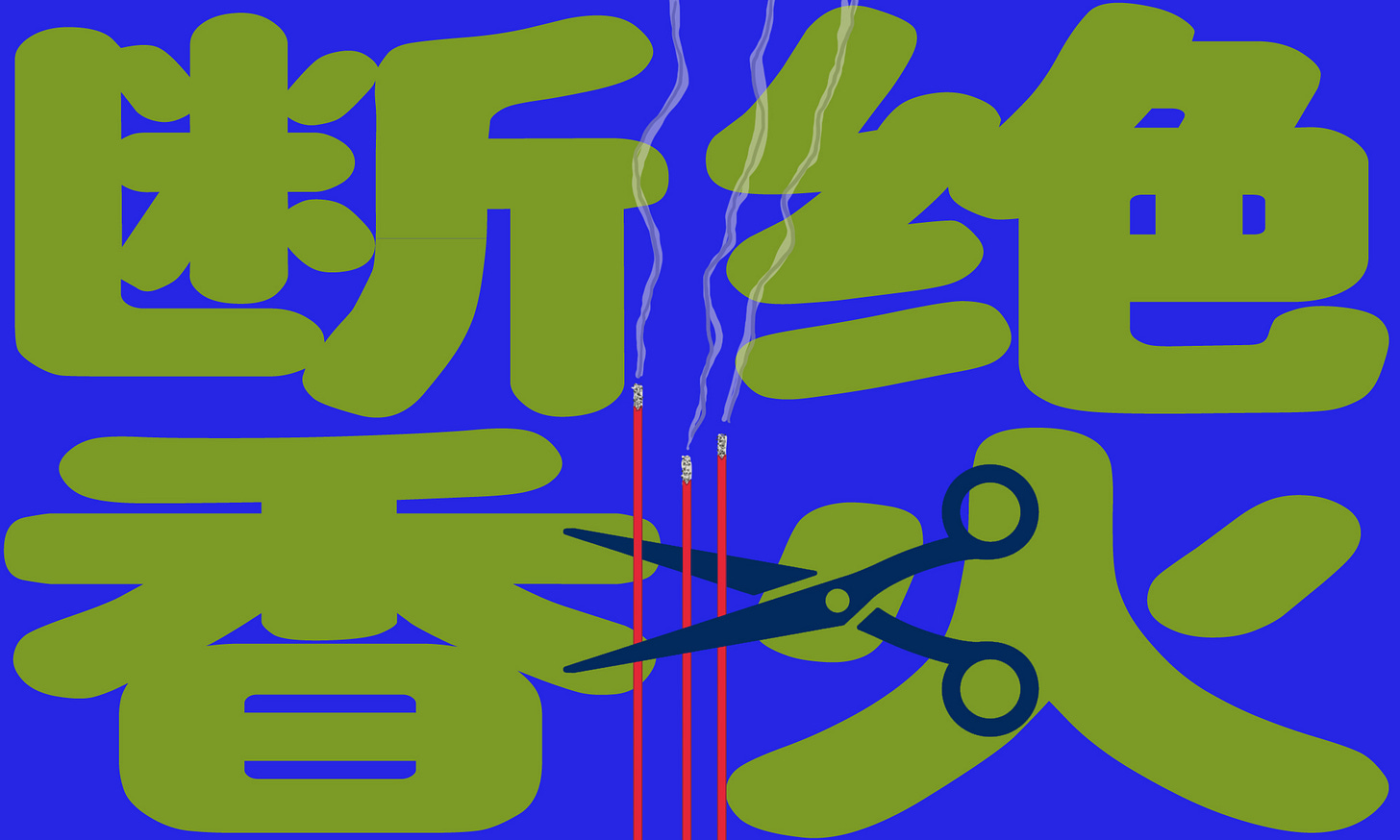"Cutting off the family line" — Phrase of the Week
Birth rate data in first half of 2024 falls short of predictions
Our phrase of the week is: "cutting off the family line" (断绝香火 duànjué xiānghuǒ)
Context
China's population fell by 2.75 million, or 0.2%, in 2023, according to data released by the National Bureau of Statistics earlier this year. This decline exceeded the 850,000 drop recorded in 2022, which marked the first contraction in China’s population since the reform era began.
This is despite policies introduced as early as 2016 to encourage families to have more children. These include the relaxation of the one-child policy, replaced by the two-child and three-child policies, and active incentives to encourage more couples of have children such as subsidies and tax reduction programs.
Many experts had predicted a slight rebound in birth rates in 2024, with some projecting that the number of births could surpass 10 million.
While some preliminary data does support it, with increases in the birth rate seen in provinces such as Guangdong and Hainan, overall there is a continued reluctance among young couples in China to have children.
According to statistics, 4.33 million births were recorded nationwide in the first half of 2024. If this trend continues, the total number of births for the year is likely to be around 8 million—lower than the 9.02 million births in 2023 and far below the expert projections of over 10 million.
Many young couples remain hesitant to have children, citing challenges such as the high cost of living, delayed marriage due to the high cost of getting married, high unemployment among graduates, limited social mobility, and a highly competitive and expensive education system.
Online discussions have brought an old Chinese phrase into the conversation, but used in a different way:
As the fertility rate declines, discussions about "cutting off the family line" are getting louder. Many people worry that this trend will lead to a severe demographic imbalance and may even directly impact the country's future.
随着生育率的下降,社会上关于“断绝香火”的讨论不断升温。很多人担心这一趋势将导致人口结构的严重失衡,甚至直接影响国家的未来
Suízhe shēngyùlǜ de xiàjiàng, shèhuì shàng guānyú “duànjué xiānghuǒ” de tǎolùn búduàn shēnwēn. Hěnduōrén dānxīn zhè yì qūshì jiāng dǎozhì rénkǒu jiégòu de yánzhòng shīhéng, shènzhì zhíjiē yǐngxiǎng guójiā de wèilái.
And with that, we have our Sinica Phrase of the Week!
What it means
"Cutting off the family line" is a four-character phrase which translates as: "cut off" (断绝 duàn jué) and "incense" (香火 xiānghuǒ).
This refers to the burning of incense and candles in ancestor worship as offerings to deities or Buddha. In traditional Chinese culture, this practice is closely tied to ancestor worship and temple offerings.
This meaning first appeared during the Yuan dynasty (1271–1368).
Its earliest known reference is in the play, Yueyang Tower (岳阳楼), by Ma Zhiyuan 马致远 (1250–1321), a Chinese dramatist, playwright, and poet:
"As long as there is a son or a daughter, the lineage of the Guo family will not be cut off"
但得一男半女,也绝不了郭氏门中香火。
Dàn dé yì nán bàn nǚ, yě jué bù liǎo Guō shì mén zhōng xiāng huǒ
Over time, the term has taken on a metaphorical meaning related to the continuation of a family line.
The phrase implies that descendants carry on the family name and honor their ancestors. Historically, to "cut the incense", or not have children, was viewed as a taboo in Confucian society, where continuing the family lineage was a core value.
Today, the phrase is sometimes used metaphorically to discuss broader social trends, such as declining birth rates and their potential impact on cultural continuity or population structure.
The difference in discussions around the recent publication of birth data is that young couples, and sometimes their parents, support the idea of not having children even if it does cut the family line.
Read more about how this story is being discussed in the Chinese media in this week’s RealTime Mandarin.




